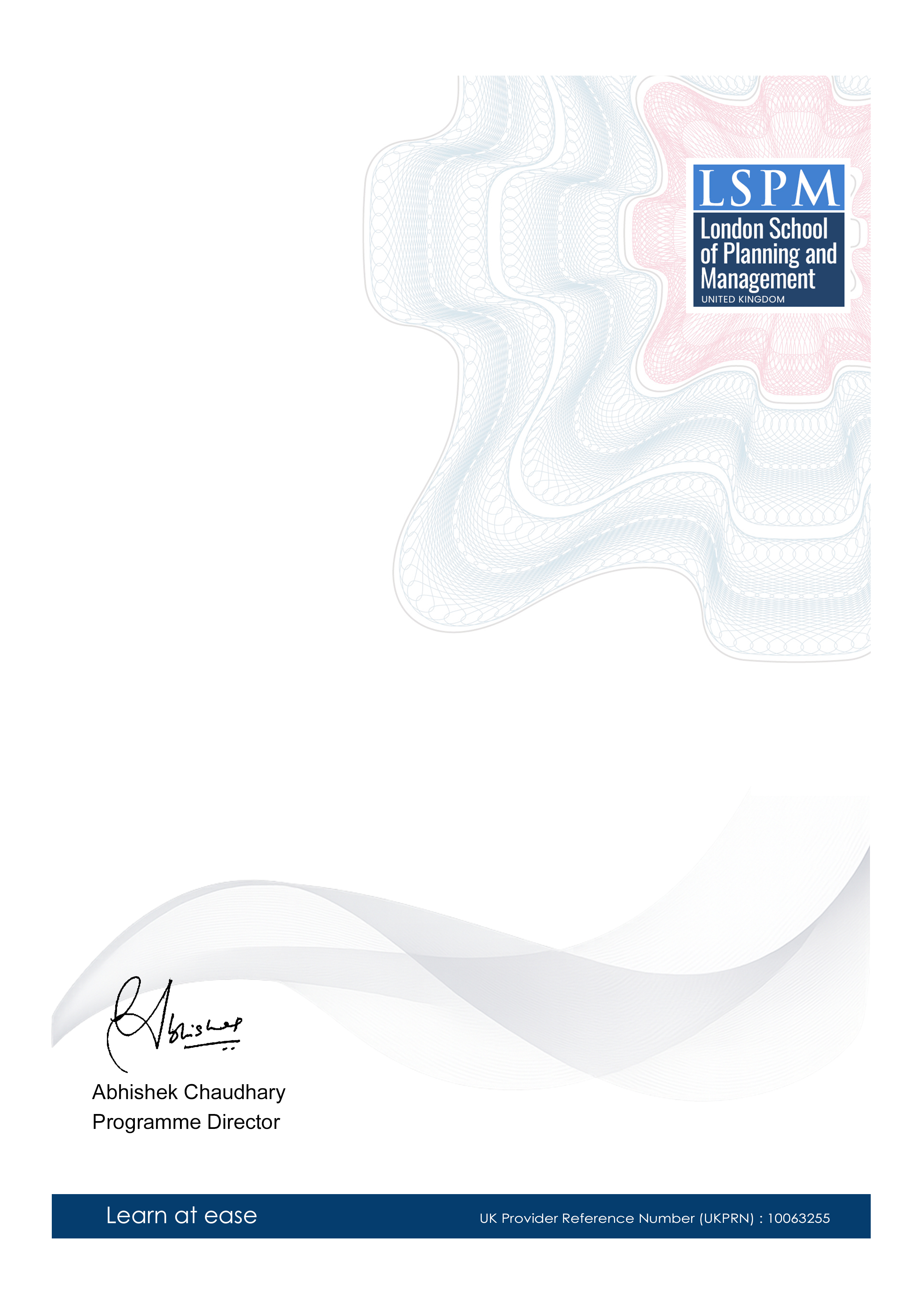Executive Certificate in Ethical Pet Nutrition
-- viewing nowThe Executive Certificate in Ethical Pet Nutrition is a comprehensive course designed to empower learners with the essential skills needed to thrive in the rapidly growing pet care industry. This course highlights the importance of providing proper nutrition to pets while adhering to ethical standards, a critical concern for today's pet owners.
4,772+
Students enrolled
GBP £ 149
GBP £ 215
Save 44% with our special offer
About this course
100% online
Learn from anywhere
Shareable certificate
Add to your LinkedIn profile
2 months to complete
at 2-3 hours a week
Start anytime
No waiting period
Course details
• Ethical Considerations in Pet Nutrition: Understanding the ethical implications of pet food production, marketing, and consumption. This unit will cover topics such as animal welfare, environmental sustainability, and social responsibility.
• Pet Nutrition Science: An overview of the nutritional needs of pets, including cats and dogs, and the science behind their dietary requirements. This unit will cover topics such as macronutrients, micronutrients, and the role of different nutrients in pet health and disease prevention.
• Pet Food Regulations and Standards: An in-depth look at the regulations and standards governing pet food production and marketing. This unit will cover topics such as labeling requirements, quality control measures, and safety standards.
• Pet Food Ingredients and Sourcing: An examination of the different ingredients used in pet food, including their nutritional value and sourcing. This unit will cover topics such as the benefits and drawbacks of different protein sources, the use of artificial preservatives and additives, and the importance of sustainable and ethical sourcing practices.
• Pet Food Palatability and Sensory Evaluation: An exploration of the factors that influence pet food palatability and sensory evaluation. This unit will cover topics such as taste preferences, textures, and aromas, and how these factors can impact pet food choice and consumption.
• Marketing and Communication in Ethical Pet Nutrition: An analysis of the marketing and communication strategies used to promote ethical pet nutrition. This unit will cover topics such as branding, messaging, and consumer education, and how these strategies can be used to promote responsible pet ownership and healthy pet diets.
• Case Studies in Ethical Pet Nutrition: An examination of real-world case studies in ethical pet nutrition. This unit will provide practical examples of how ethical considerations can be integrated into pet food production, marketing, and consumption.
• Ethical Leadership in Pet Nutrition: An exploration of the role of leadership in promoting ethical
Career path
Pet Nutritionists play a crucial role in creating and developing balanced diets for pets. They need a strong understanding of animal nutrition, food science, and pet behavior. 2. **Quality Control Manager (20%)**
Quality Control Managers ensure that pet food products meet specific safety and quality standards. Their responsibilities include monitoring production processes, implementing quality assurance protocols, and conducting regular inspections. 3. **Animal Scientist (10%)**
Animal Scientists research the biological, physical, and nutritional needs of pets. They often work alongside Pet Nutritionists to develop new products. 4. **Product Development Scientist (10%)**
Product Development Scientists create innovative pet food products, combining scientific knowledge, creativity, and market research. They play a vital role in the pet food industry's growth and evolution. The 3D pie chart below provides a visual representation of the aforementioned roles and their market presence. This chart has been designed with a transparent background, ensuring seamless integration into your webpage. It will adapt to all screen sizes due to its responsive design. (Note: The percentages provided in this content are for illustration purposes only and may not accurately reflect the UK job market for ethical pet nutrition.)
Entry requirements
- Basic understanding of the subject matter
- Proficiency in English language
- Computer and internet access
- Basic computer skills
- Dedication to complete the course
No prior formal qualifications required. Course designed for accessibility.
Course status
This course provides practical knowledge and skills for professional development. It is:
- Not accredited by a recognized body
- Not regulated by an authorized institution
- Complementary to formal qualifications
You'll receive a certificate of completion upon successfully finishing the course.
Why people choose us for their career
Loading reviews...
Frequently Asked Questions
Skills you'll gain
Course fee
- 3-4 hours per week
- Early certificate delivery
- Open enrollment - start anytime
- 2-3 hours per week
- Regular certificate delivery
- Open enrollment - start anytime
- Full course access
- Digital certificate
- Course materials
Get course information
Earn a career certificate

